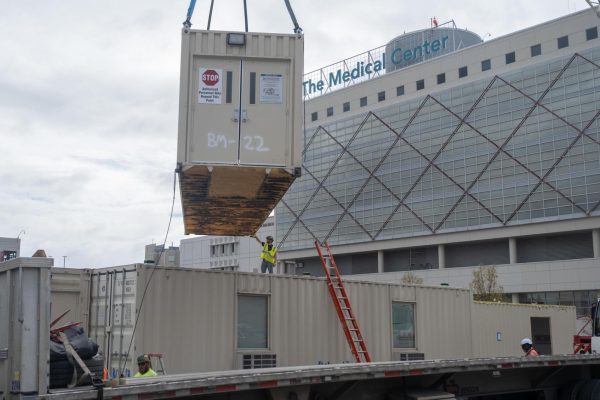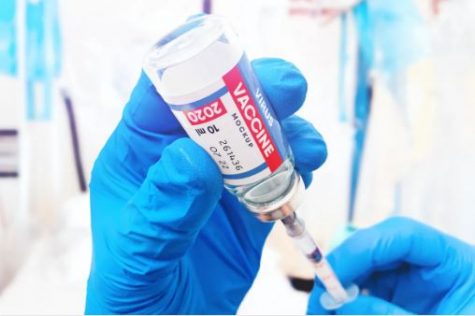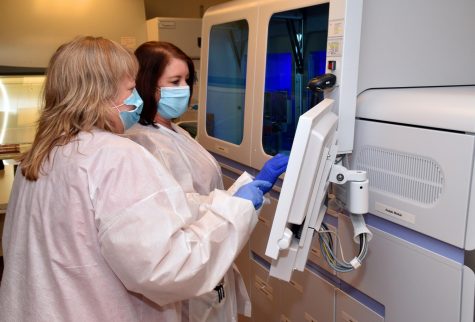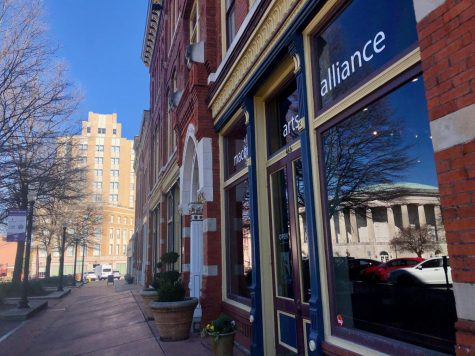What is considered ‘exposure’ to COVID-19? Macon business owners advised how to handle infections
The Macon-Bibb County Board of Health again is urging the county commission to pass a mask mandate now that Georgia’s governor has set a threshold for allowing local laws.
With cases of COVID-19 escalating in Georgia, many business owners are wondering how to proceed in order to keep customers and workers safe.
NewTown Macon hosted an online seminar with health, legal and public safety experts Thursday morning to answer some important questions about handling the deadly pandemic.
Carla Coley, environmental health director for North Central Health District, told the business community not to automatically test workers immediately after an exposure.
“Just because you test today doesn’t mean you won’t be positive tomorrow,” Coley said.
She recommends waiting a few days before testing.
“It’s up to the business owner but we do not recommend testing if you’re asymptomatic or just recently exposed,” Coley said. “Exposure means you have been around someone less than 6 feet away for more than 15 minutes. … Someone casually walking by or passing someone in a grocery store is not it.”
Because it can take the virus days to reach detectable levels, testing too soon could indicate a false negative, she said, and put people at risk of infection days later.
Businesses can mandate workers be tested, but attorney Grant Greenwood advised using practical sense to determine if it’s necessary or wise.
“A lot of that depends on the type of business and testing availability,” Greenwood said. “Because we’re going through a spike or surge… testing availability might be the bigger problem.”
Macon-Bibb County EMA director Spencer Hawkins suggests shutting down a business only for as long as it takes to sanitize the facility.
After multiple workers at Macon-Bibb’s parks and recreation department tested positive last week, the centers have closed.
“Look at the work space… where that person spends time… common areas,” Hawkins said. “You can do proper sanitization… and most importantly can open back up.”
The CDC has guidelines for effective strategies for workers who may have been exposed, Coley said.
Those asymptomatic employees should be monitored, wear a mask at all times in the workplace for 14 days after the last exposure and stay 6 feet away from others.
Hawkins demonstrated the proper way to wear a mask from the bridge of the nose to under the chin. Exposing your nose or mouth negates the effectiveness of containing the virus.
Although business owners, some county commissioners and citizens urged Mayor Robert Reichert to mandate masks, he doesn’t have the legal authority to do so, both Hawkins and Greenwood said.
Gov. Brian Kemp’s executive orders explicitly state that no local authority can pass measures that are more restrictive or more lenient than his order.
“Our legal team has looked at this,” Hawkins said. “We can issue an order but within minutes it can be challenged in court and we will lose.”
There is no way to legally enforce mandatory masks in public spaces, but there can be restrictions within individual businesses, Greenwood said.
“Any business is free to mandate masks for their customers or employees,” Greenwood said. “It’s good practice at this point. I think it shows a lot of responsibility.”
The North Central Health District public information officer Michael Hokanson has stressed since there is no vaccine or guaranteed treatment, masks, proper hand-washing and disinfecting are the best tools to combat infections at this point.
Some business owners fear being outed on social media if someone announces they were in the facility and have since tested positive for the deadly virus, or if an employee’s illness is exposed. Coley reminded the business leaders that the clinical definition of exposure is at least 15 minutes within 6 feet of an infected person, but full disclosures can strengthen public trust.
The health department will advise businesses it regulates when it gets notice of a positive person visiting their establishments.
“You can’t over-communicate,” Hawkins said. “I’ve seen where people are posting what they’re doing for the workforce and customers. Be honest.”
Hopkins agrees that businesses should make known their COVID-19 mitigation plans and procedures for cleaning stores, offices and restaurants.
“Pin on your Facebook page at the top what you’re doing so everyone knows what you’re doing to keep people safe,” Hopkins said.
Greenwood also reminded the business owners that Georgia lawmakers approved liability protection from lawsuits related to infections unless there is gross negligence.
Anyone with additional questions or needing clarification should visit the CDC and Department of Public Healthwebsites.
Contact Civic Reporting Senior Fellow Liz Fabian at 478-301-2976 or [email protected].













